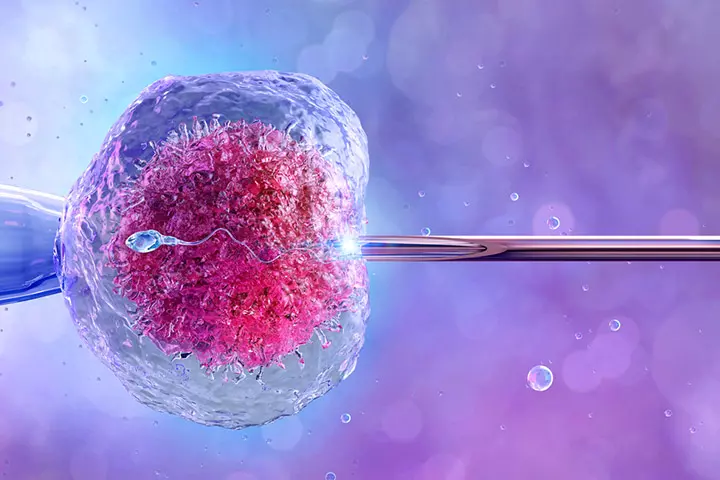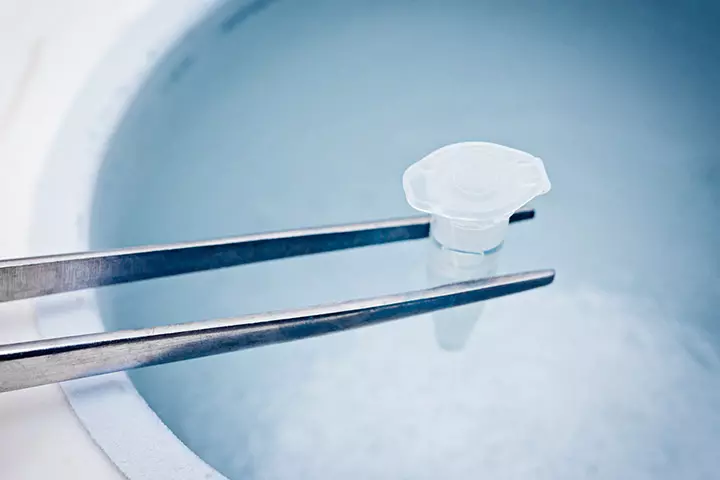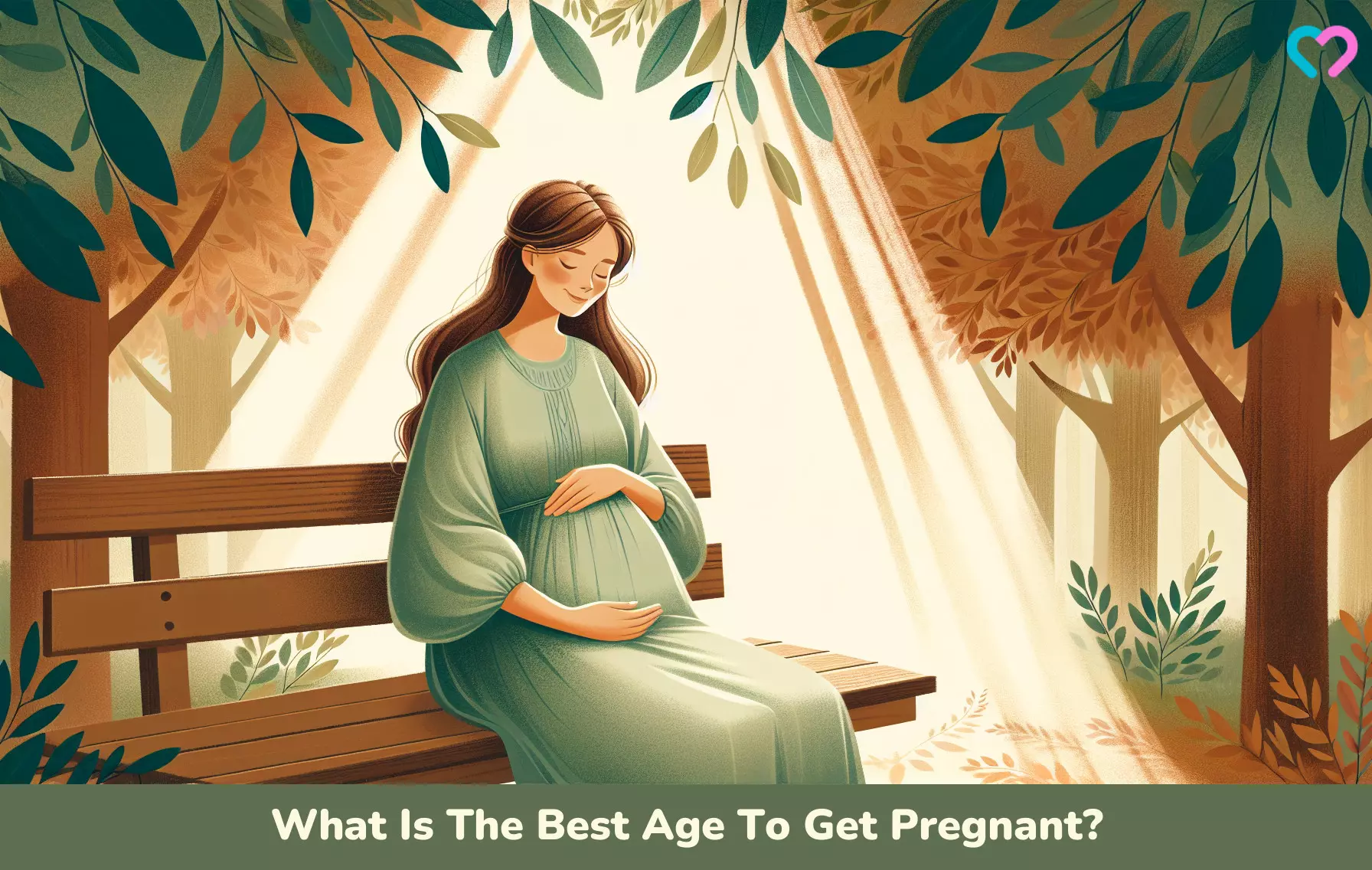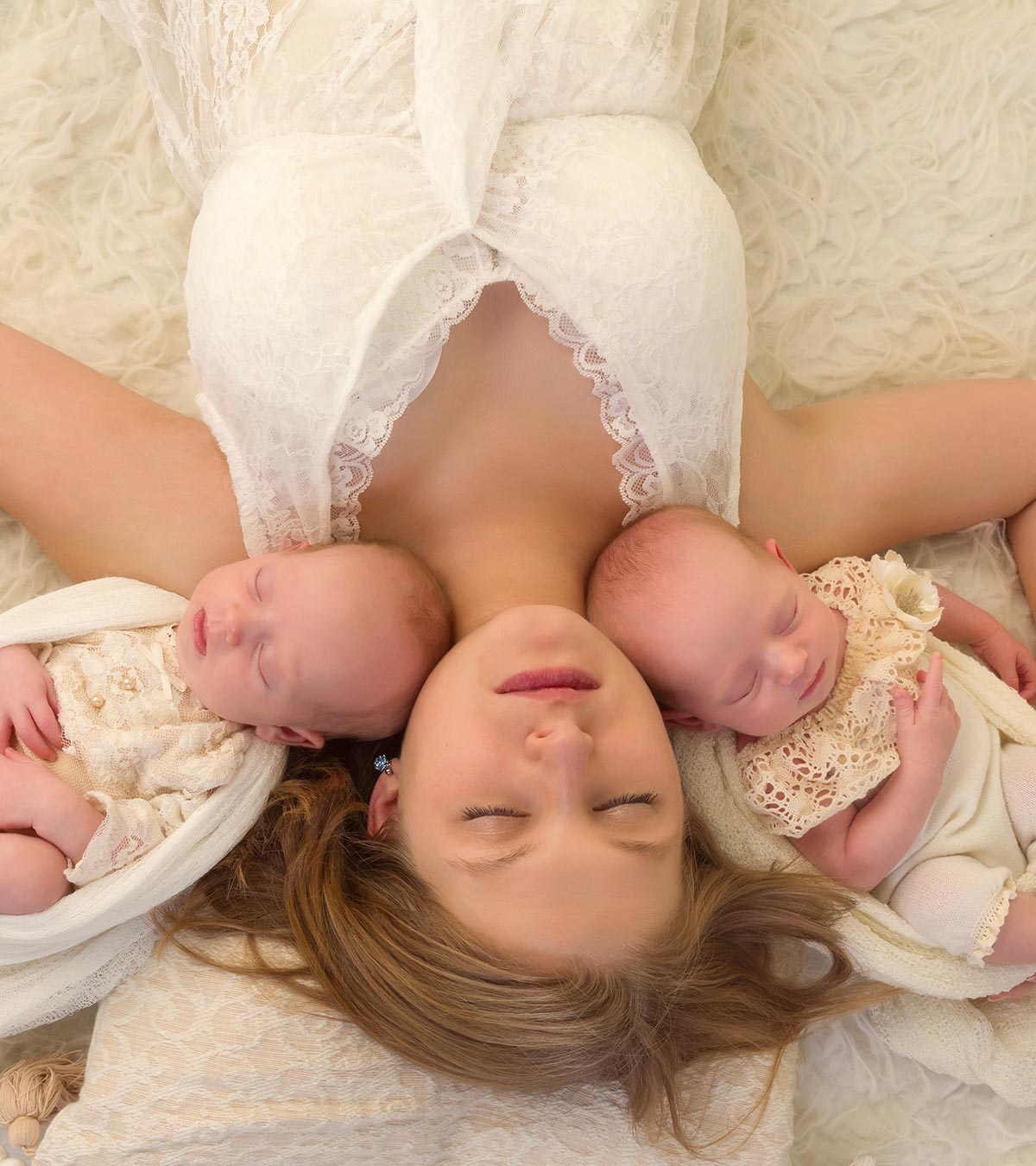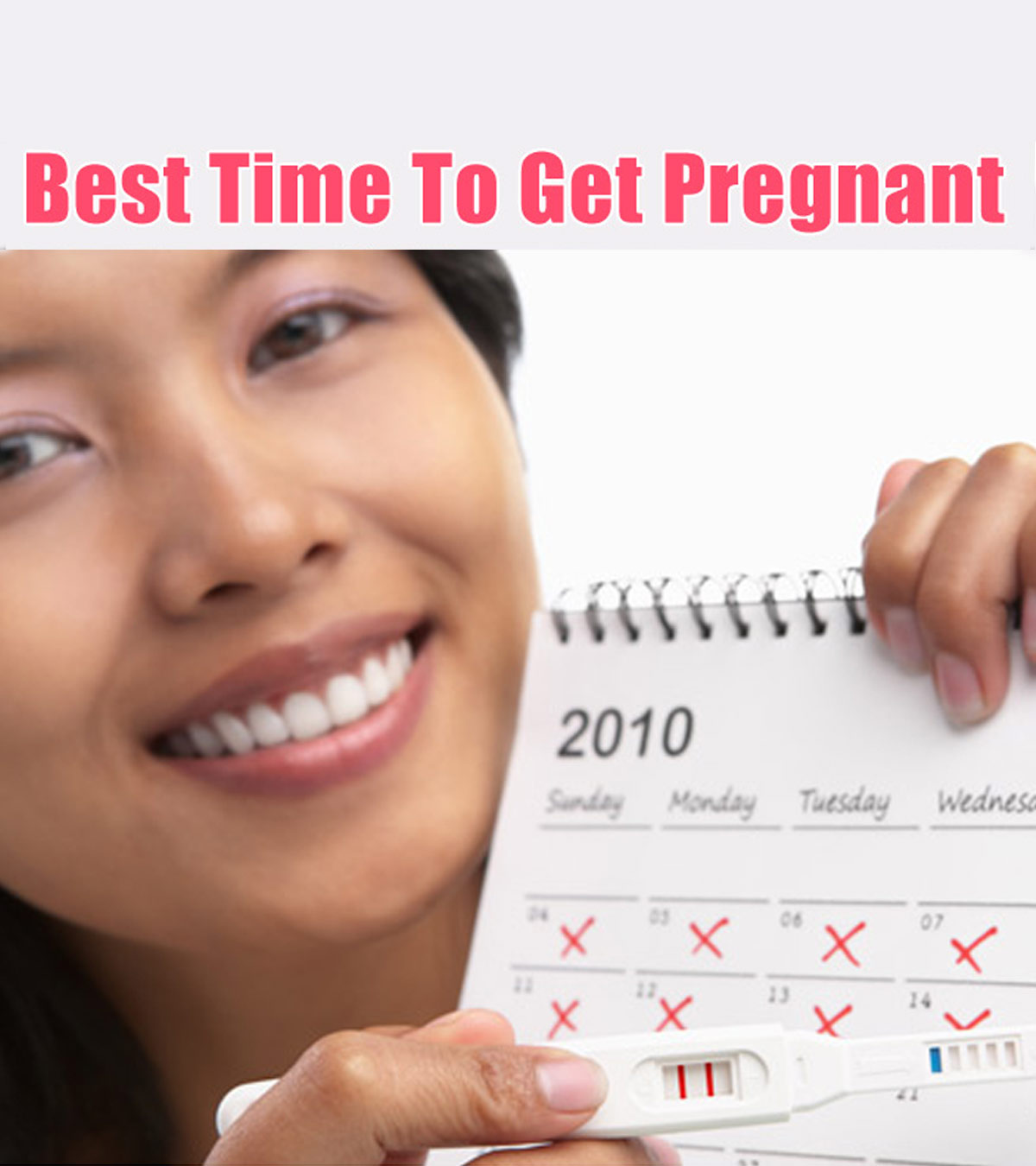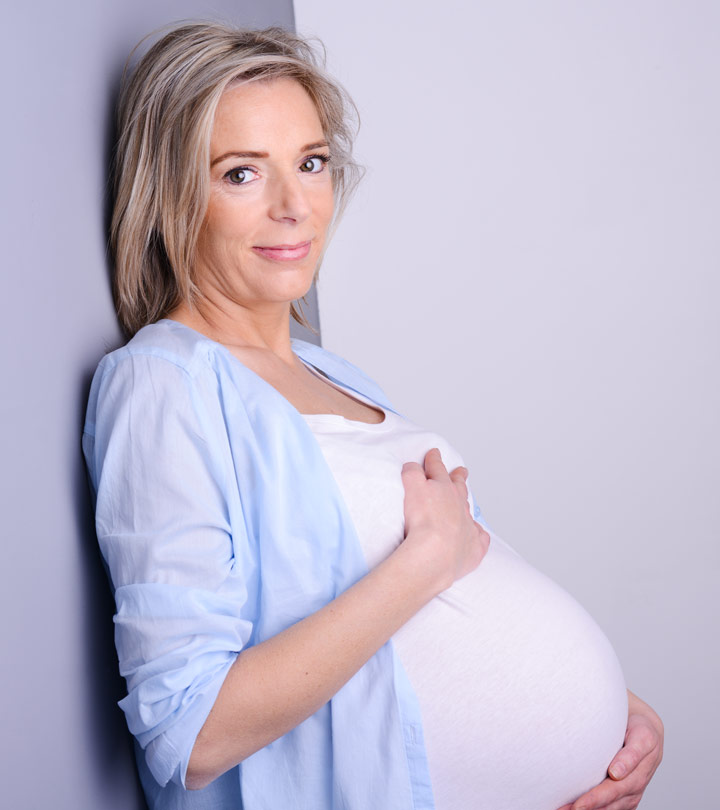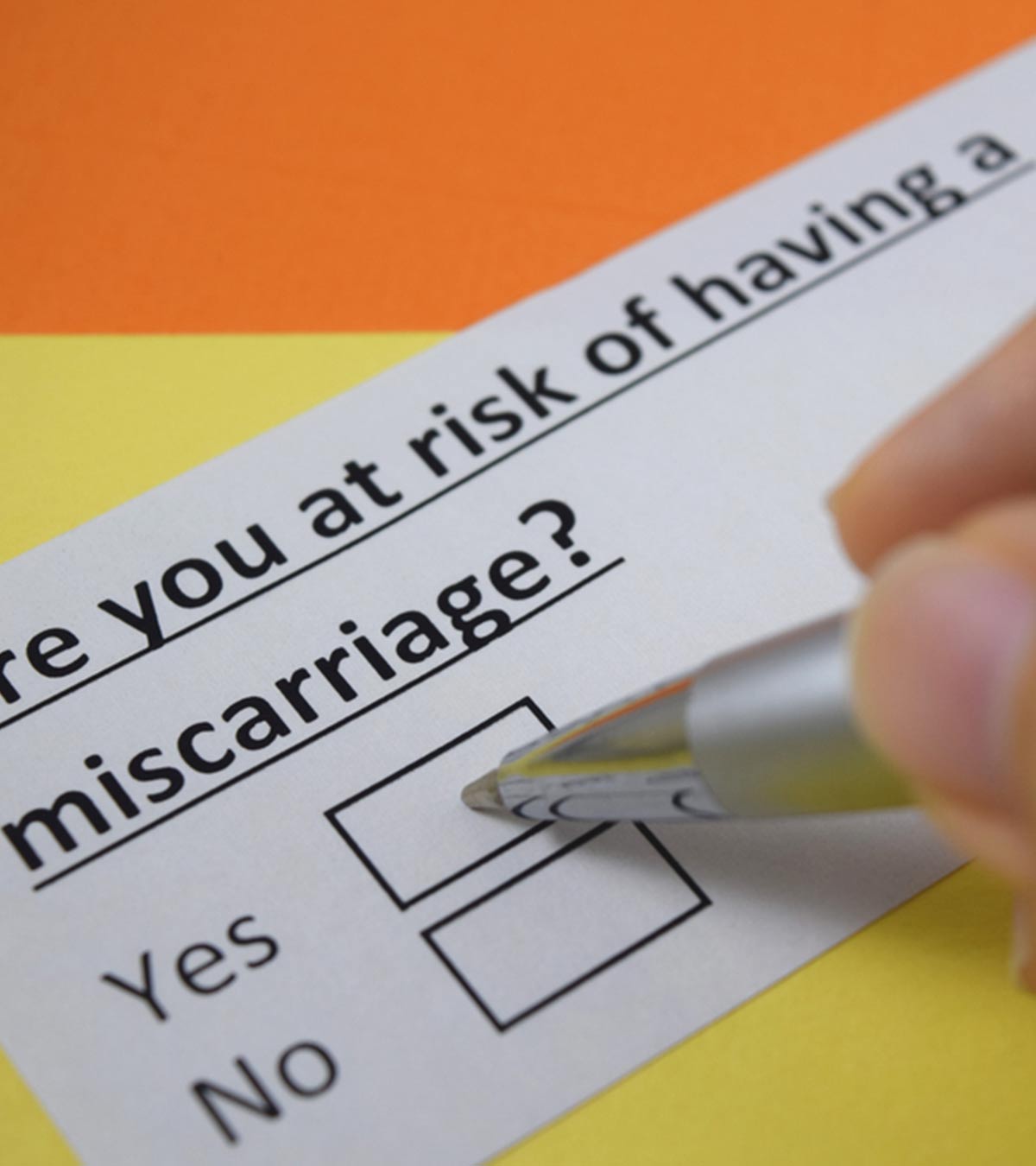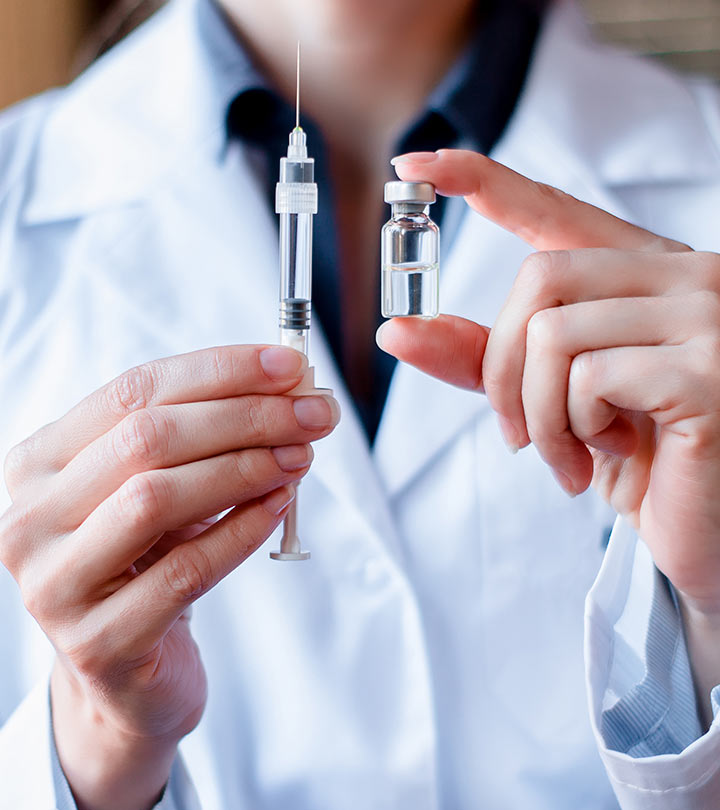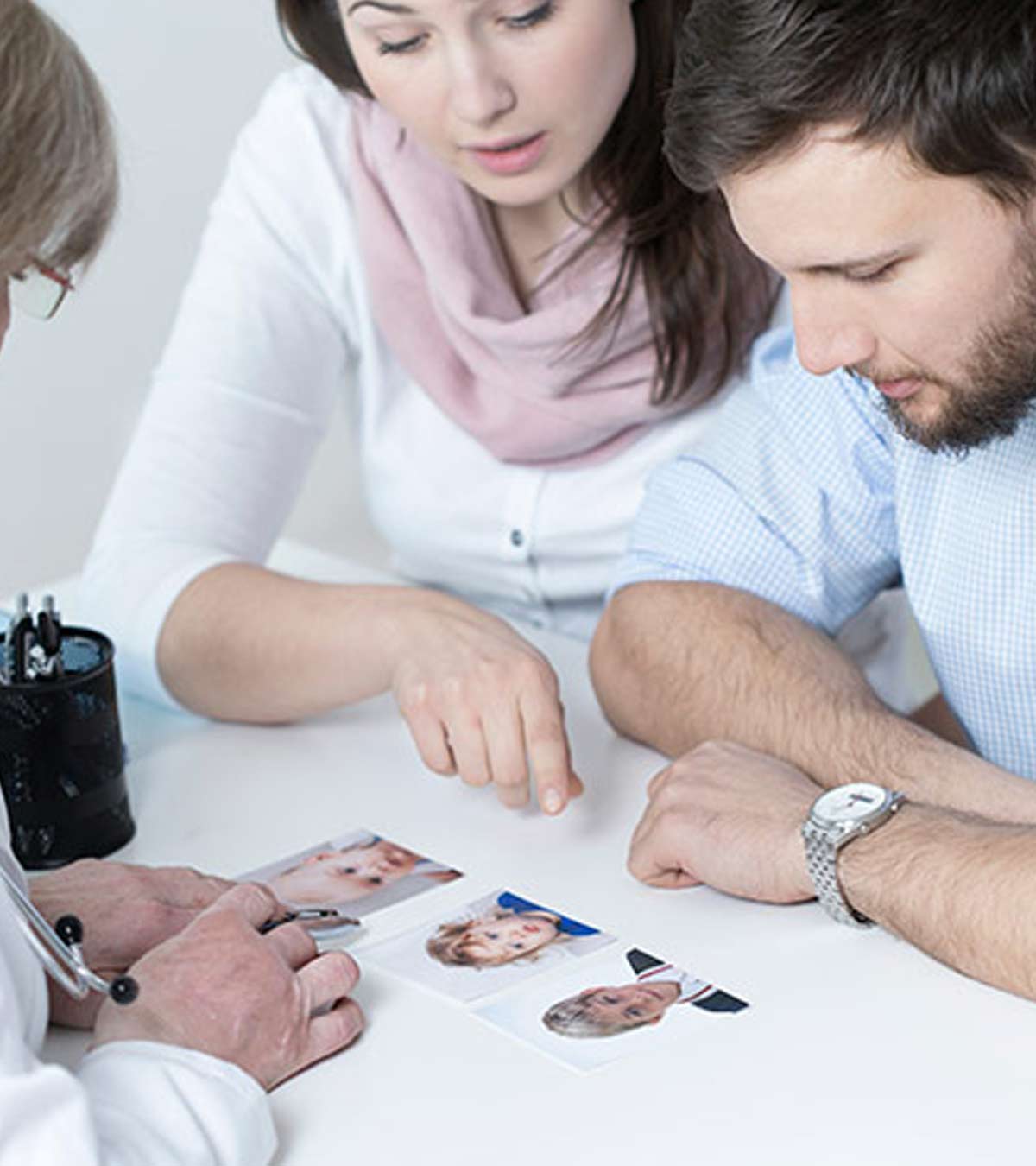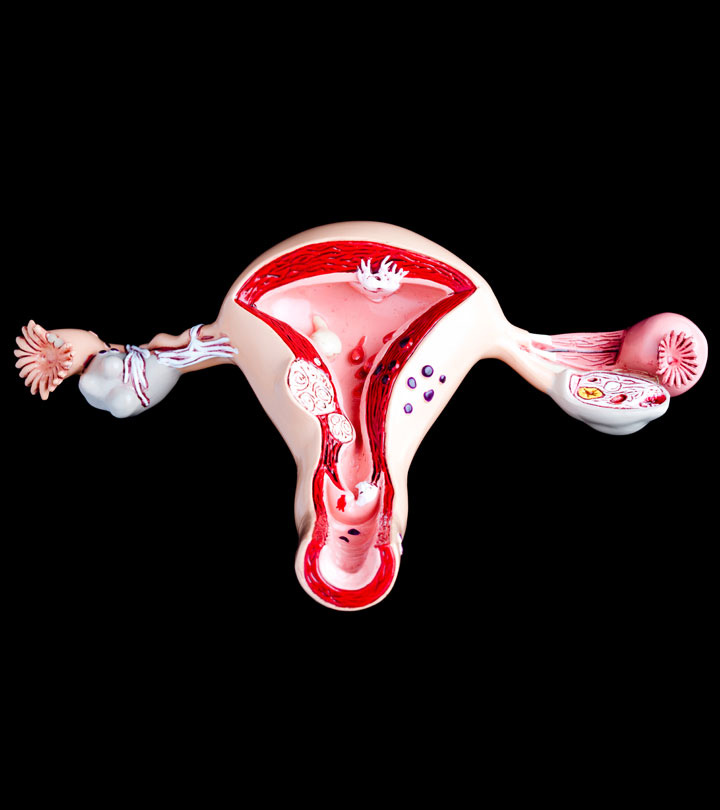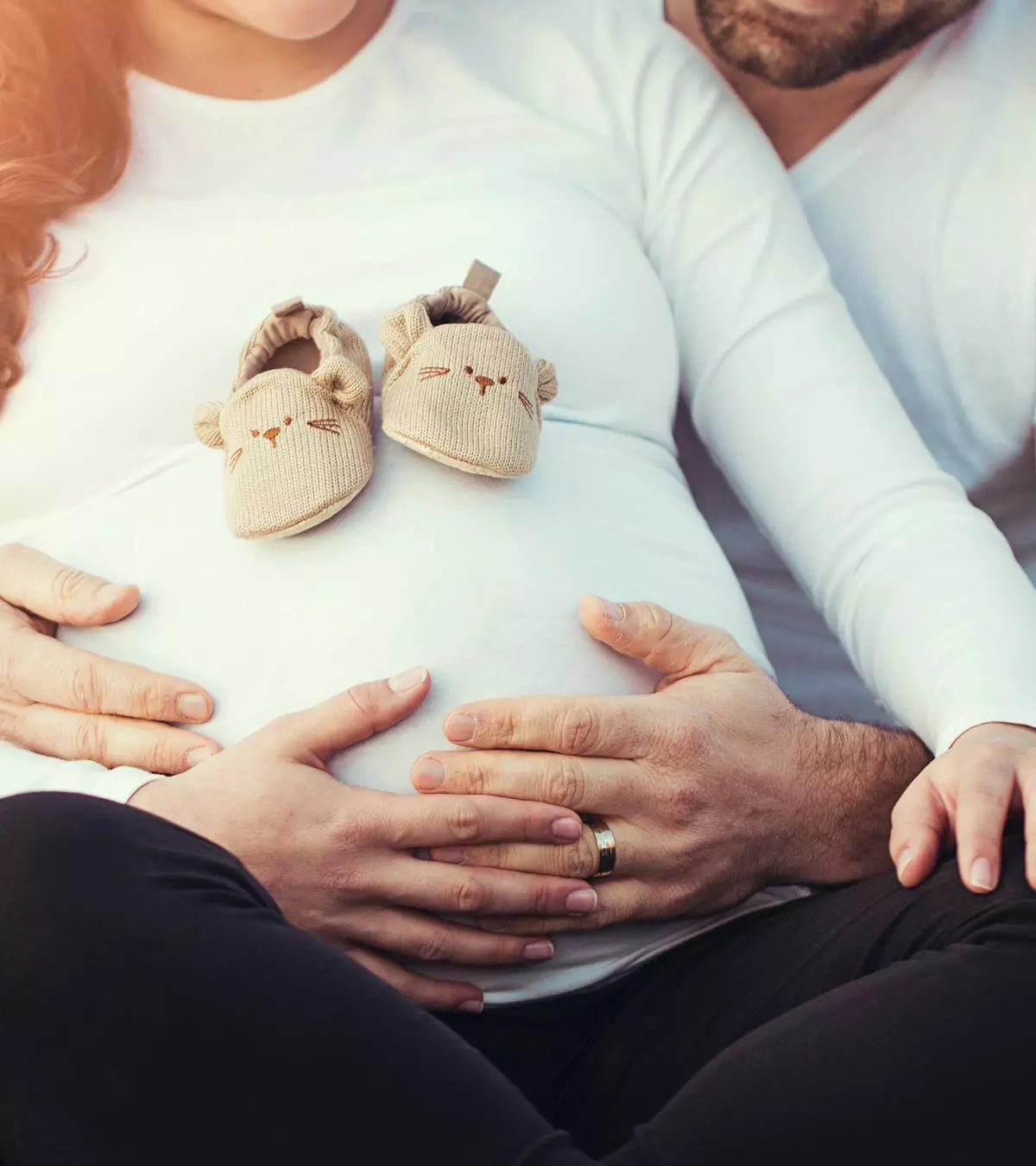
When you want to conceive is a personal choice. However, the best age to get pregnant is when you are physically, emotionally, socially, and financially ready to take up the responsibilities of bearing and then rearing a child.
Although the ideal age for conception varies for every woman, experts suggest that conceiving anytime between the 20s and early 30s has the best outcomes for you and your baby (1).
According to the report by the CDC’s National Survey of Family Growth (NSFG), the likelihood of giving birth was 11% by age 18, 64% by age 30, 82% by age 40 for females, and 3% by age 18, 47% by age 30, and 72% by age 40 for men.
Typically, fertility declines with age. However, with medical advancement, women of advanced ages can carry and deliver healthy babies. The age at which the mother is pregnant is known as maternal age, and an advanced age would require doctor consultation (2). Keep reading as we tell you more about how your age and pregnancy are linked and what it means to carry a baby at a certain age.
Before Your 20s
- This might not be the ideal age for most women but is still the most fertile age.
- Women usually have a lower weight at this age, thus making pregnancy weight easy to manage.
- There is an increased risk of hypertensive pregnancy disorders, abortion, urinary infections, and premature rupture of the fetal membranes (2).
- Women may not be emotionally prepared to handle pregnancy issues.
- Parents might face financial problems while raising the child.
 Things to know
Things to knowIn Your 20s
- Women are fertile, and it is easier for them to get pregnant now than later.
- The chances of having a healthy baby and low-risk pregnancy are the highest in the 20s, a period of peak fertility for most women (3).
- They have enough energy to pass through the phase of pregnancy and are less likely to get chronic conditions.
- Regaining the pre-pregnancy weight is easy.
Image: Shutterstock
- Finances could still be a burden since most young couples might be repaying their educational loans and settling in their careers.
In Your 30s
- Once you hit the 30s, your fertility might start slowing down due to the decreasing quantity and quality of ovum (4). The risk of aneuploidyiA genetic disorder characterized by an abnormal number of chromosomes. is also higher.
- Fertility starts to decline considerably after 35.
- The risk of high blood pressure, gestational diabetesiA condition characterized by elevated blood sugar levels due to hormonal and physical changes in pregnancy. , and difficult labors increases (5).
- You may require fertility assistance treatments in the late 30s.
- The success rate of fertility assistance treatments such as in vitro fertilizationiAn assisted reproductive technique where eggs and sperm process to form an embryo outside of the body, usually in a lab. (IVF) and stimulators for ovulation might come down too (6).
Image: Shutterstock
- The risk of miscarriage and chromosomal abnormalities is high after age 35 (7).
- There is a substantial amount of risk of having a stillbirth if you conceive after the age of 35 (8).
- The chances of twin conception are high since hormonal variations in older women lead to the release of multiple eggs (9).
- But this is the time when the relationships are stable, and couples are committed to parenthood.
In Your 40s
- The chance of getting pregnant naturally declines in the 40s.
- Pregnancy at 40 is considered a higher-risk pregnancy than pregnancy at a younger age, as women’s fertility declines with age and there is an increased risk of complications such as a miscarriage, ectopic ectopic pregnanciesiA life-threatening form of pregnancy where the egg fertilizes in the fallopian tubes instead of in the uterus. , diabetes, preeclampsia, placental problems, preterm labor, and low birth weight, which can affect the maternal and infant health.
- The chances of having a cesarean section are higher.
- Pregnancy needs to be carefully managed and might need additional tests such as amniocentesisiA medical procedure that involves taking an amniotic fluid sample from the uterus to check for chromosomal or genetic disorders. or chorionic villi chorionic villi samplingiA prenatal diagnostic test to determine chromosomal or genetic disorders. (CVS) to screen for genetic disorders like Down syndrome in the baby (10).
- With proper care, you can maintain your reproductive health and have a healthy pregnancy even in your 40s.
Note that these scenarios are generic. They may or may not hold good to you. But two common things to note are:
- You are more fertile at a younger age than older.
- You can get pregnant even at 40, provided you have a healthy lifestyle, take care of your health, and address any health issues promptly (10).
Benefits Of Being A Young Parent
- The cultural gap between you and your child is less.
- You will have enough time to have more children.
- You are physically more active to keep up with your child.
Image: Shutterstock
- The children will get settled sooner, leaving you leisure time later in life.
- There would be a quick pregnancy bounce-back.
- There is a higher probability for you to see a couple of generations down the line.
- It is easier to take time off work.
Benefits Of Having A Child Later In Life
- Your life experiences make you wiser (11).
- You will have a better income to support the child.
- Children are found to be healthier with fewer health issues due to a better quality of life.
- You will have more time to spend with your child.
- You will be emotionally stable.
You need to consider factors such as fertility, emotional maturity, career stability, family orientation, financial health, etc., before deciding on when to have children.
Lisa Daly, a mother and blogger, shares her insights on navigating pregnancy at 40. She candidly states, “Because of my age, and also because of a pre-existing congenital heart condition I was diagnosed with two years ago — hypertrophic cardiomyopathy — I am considered high risk. (However,) my age has not affected my experience at all. Perhaps it’s actually made it better as I am in a place where I am so ready for this next experience in life. I am confident in myself, my job, my financial situation, and my whole heart love this baby already without hesitation or fear (i).”
 Quick fact
Quick factWhat To Do If You Want To Get Pregnant Now?
Follow the below steps if you are planning for a pregnancy, irrespective of your age (11) (12).
- Schedule a preconception check-up to review your personal, family and medical history
- Find out if you need to go through genetic carrier screening
- Start taking folic acid supplements after consulting your doctor
- Quit tobacco, alcohol and illegal drugs
- Opt for nutritious food and have a balanced diet
Image: Shutterstock
- Keep a check on your caffeine intake
- Aim to reach a healthy weight
- Follow an exercise routine
- Make a note of your financial matters
- Stay away from environmental dangers
- Figure out your ovulation time and have intercourse during the most fertile period during your cycle
It is recommended to consult a fertility expert if you are facing the following issues while trying to get pregnant:
- Missed or irregular menstrual period
- Sexually transmitted diseases
- If you are below 35 with regular cycle; not being pregnant after trying for one year
- If you are 35 to 39 with regular cycle; not being pregnant after trying for six months
- If you are 40 or above with regular cycle; not being pregnant after trying for three months
A fertility expert will evaluate the potential reasons for fertility issues and suggest appropriate treatments. These may include assisted reproductive technologies that can increase the chances of successful conception and help you realize your dreams of parenthood.
What To Do If You Want To Postpone Pregnancy?
Image: Shutterstock
If you would like to have children sometime later, but not now, you should have protected sex, especially during the fertile days (ovulation). If you are young and want to postpone your pregnancy, you also have the option to freeze your eggs and use them later for conception. This may help you to have a good quality egg, but the pregnancy risks remain depending on the age at which you wish to get pregnant.
Does Age Affect Male Fertility?
Yes, a man’s fertility decreases with age. The semen volume, sperm count, and motility are affected usually after the age of 40. A man can father a child even when he is beyond 40, but it may be more difficult to become a parent in the 40s than it is at a younger age. The risk of miscarriage and genetic abnormalities in the child is high if the father’s age is above 45, irrespective of the mother’s age (13).
 Things to know
Things to knowFrequently Asked Questions
1. What is the ideal body weight for getting pregnant?
The ideal body weight for pregnancy falls within the body mass index range of 18.5 to 24.9. However, women with a higher BMI can still conceive by taking measures to lower their weight and reach a healthy range (14).
2. What is the best way to prepare physically and emotionally for pregnancy at an older age?
To prepare for pregnancy at an older age, it’s important to track your weight, follow a healthy diet, engage in physical activity, note your family and personal medical history, track ovulation, manage stress, avoid unhealthy habits, such as smoking and alcohol, reduce caffeine intake, avoid irritants and infections, consult a doctor, complete necessary vaccinations, and start taking prenatal vitamins (15) (16).
3. How do cultural and societal norms influence the decision to have children at a certain age?
Several studies show that cultural and societal norms across different cultures significantly influence the decision to have children at a certain age. For instance, in some cultures, individuals may feel pressure to have children early in life, while in others, there might be an emphasis on career development or personal goals before starting a family. Pressure to conform to societal expectations, level of education, proximity to the community, occupational beliefs, and family traditions and values are other factors that also influence individuals’ decisions as to when they want to become parents (18) (19).
Be it your 20s or 40’s, deciding to get pregnant depends on your health, economic status, and personal choice. Hence there may not be any best age to get pregnant; however, the age where you are most fertile and active healthwise does make for an ideal time to conceive and have a risk-free pregnancy. Moreover, pregnancy brings a heap of responsibilities that require you to be stable in life in every aspect. So if you are planning pregnancy, discuss it with your partner and your ob/gyn and move forward accordingly.
Infographic: What To Do If You’re Planning For A Pregnancy?
Planning before conception can be helpful for a healthy pregnancy and ensures you are ready to welcome a new member. The infographic below enlists a few useful steps that a couple should follow if they’re planning for a baby. All these steps help ensure the mother is healthy enough to conceive a baby. Illustration: Momjunction Design Team
Key Pointers
- Experts recommend that the best time to conceive is between the 20s and early 30s, as it may have the best outcomes.
- Fertility in women may decline, particularly after the age of 35.
- After 35, the risk of fetal and maternal complications also increases.
- Women in their 40s may require careful monitoring and additional tests during pregnancy.
- Young parents may have the advantage of seeing their children get settled sooner and having more leisure time later in life.
- Delaying parenthood may lead to greater maturity and financial and emotional stability as parents.
- It is crucial to discuss concerns with your partner and a doctor before planning parenthood.
Image: Dall·E/MomJunction Design Team
Are you considering a pregnancy? Receive advice on the optimal age for pregnancy and associated risks, empowering your family planning journey in this interesting video.
Personal Experience: Source
MomJunction articles include first-hand experiences to provide you with better insights through real-life narratives. Here are the sources of personal accounts referenced in this article.
i. I am 40. I am pregnant. And I feel fantastic.https://medium.com/@lisajdaly/i-am-40-i-am-pregnant-and-i-feel-fantastic-55c6a8cb7bdc
References
1. Susan Bewley et al.; Which career first; BMJ (2005)
2. Maternal Age ; Harvard Edu
3. Walter Fernandes de Azevedo et al.; Complications in adolescent pregnancy: systematic review of the literature; Einstein (Sao Paulo)
4. Having a Baby After Age 35: How Aging Affects Fertility and Pregnancy; ACOG
5. Pregnancy Over Age 30; University of Rochester Medical Center (2018)
6. Age and Fertility; The American Society for Reproductive Medicine
7. Anne-Marie Nybo Andersen et al.; Maternal age and fetal loss: population based register linkage study
8. Older mothers and the risk of stillbirth: Tommy’s
9. Amelia S. McLennan, et al.; The Role of Maternal Age in Twin Pregnancy Outcomes
10. A. Dietl et al.; Pregnancy and Obstetrical Outcomes in Women Over 40 Years of Age; Geburtshilfe Frauenheilkd (2015)
11. M. Myrskylä et al.; Advantages of later motherhood; Gynakologe (2017)
12. About Planning for Pregnancy; Centers for Disease Control and Prevention; (2018)
13. Age and fertility; The Victorian Government
14. Healthy Body Weight Before and During Pregnancy; FoodSmart Colorado
15. How To Prepare Your Body for Pregnancy; Cleveland Clinic
16. How to Prepare for Pregnancy; John Hopkins Medicine
17. Adolescent pregnancy; WHO
18. Xiao Yucorresponding and Jianing Liang; 2022; Social norms and fertility intentions: Evidence from China; NCBI
19. Samantha Willan et al.; 2020; Exploring young women’s reproductive decision-making, agency and social norms in South African informal settlements; PLOS ONE
Read full bio of Subhashis Samajder
Read full bio of Swati Patwal
Read full bio of Dr. Joyani Das






